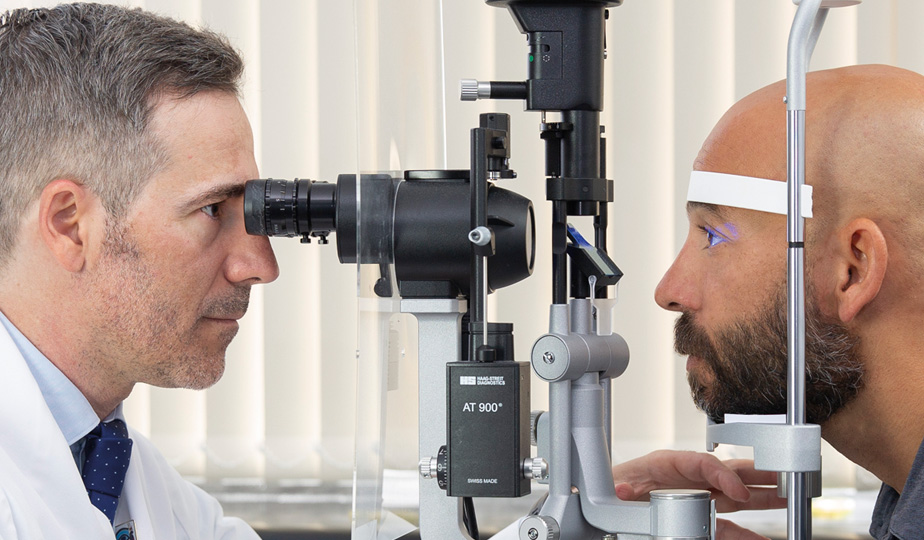Changes in vision during pregnancy: causes and care
28/03/2025

09/08/2023
Myopia is a very common visual disorder that affects a large number of people worldwide. It is a refractive error that causes difficulty in seeing distant objects clearly.
In most cases, it occurs because the eye is longer than normal, but it can also be caused by an increase in the curvature of the cornea (as in keratoconus) or by an increase in the refractive index of the lens (as in cataracts, for example). This causes light rays to focus in front of the retina rather than on it.
Myopia usually manifests during childhood or adolescence and can gradually worsen over time, especially during the growth spurt in adolescence. Symptoms include headaches, eye fatigue, and difficulty in seeing distant objects. In children, it can be observed as difficulty in seeing the chalkboard clearly, the habit of holding books very close while reading, and getting very close to screens. These symptoms might even be accompanied by poor academic performance.
The treatment of myopia should be individualized in each case, and although it's not curable, it can be corrected or slowed down through:
Correction with glasses and/or contact lenses
This is the simplest way to correct myopia. Currently, for children with progressive myopia or a family history of high myopia, as per the ophthalmologist's recommendation, glasses or contact lenses known as peripheral defocus lenses can be recommended to slow down its progression.
Laser corneal refractive surgery
Techniques like LASIK, PRK, and SMILE are the most commonly used methods for myopia surgery due to their proven safety and effectiveness. They work by altering the curvature of the cornea to focus light rays onto the retina.
Intraocular lenses
In selected cases, other surgical techniques exist, such as the implantation of phakic intraocular lenses (without removing the natural lens) or the extraction of the lens with the implantation of an intraocular lens.
Myopia can increase the risk of other eye diseases, such as glaucoma, cataracts, or retinal detachment, among others. Therefore, it is essential to maintain good eye health and undergo regular ophthalmological check-ups to detect any problems in a timely manner.
Dr. Paola Sauvageot, Ophthalmologist at the Barraquer Ophthalmology Centre